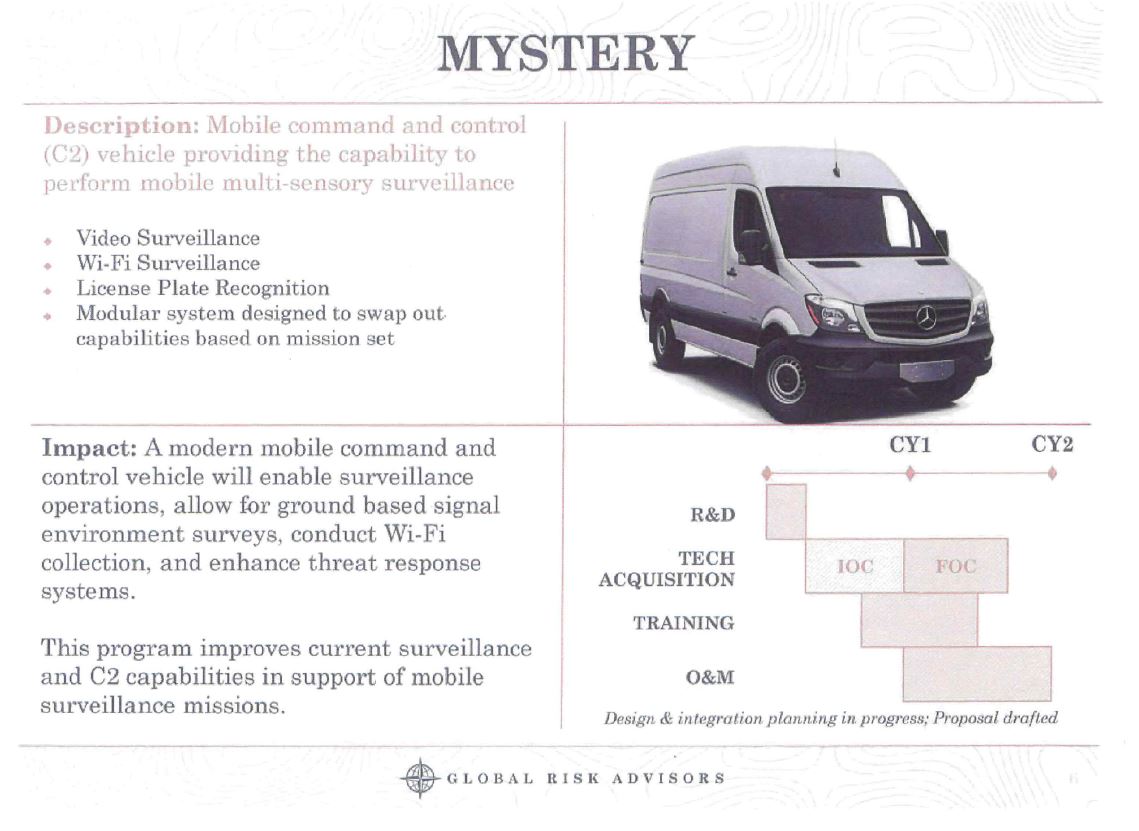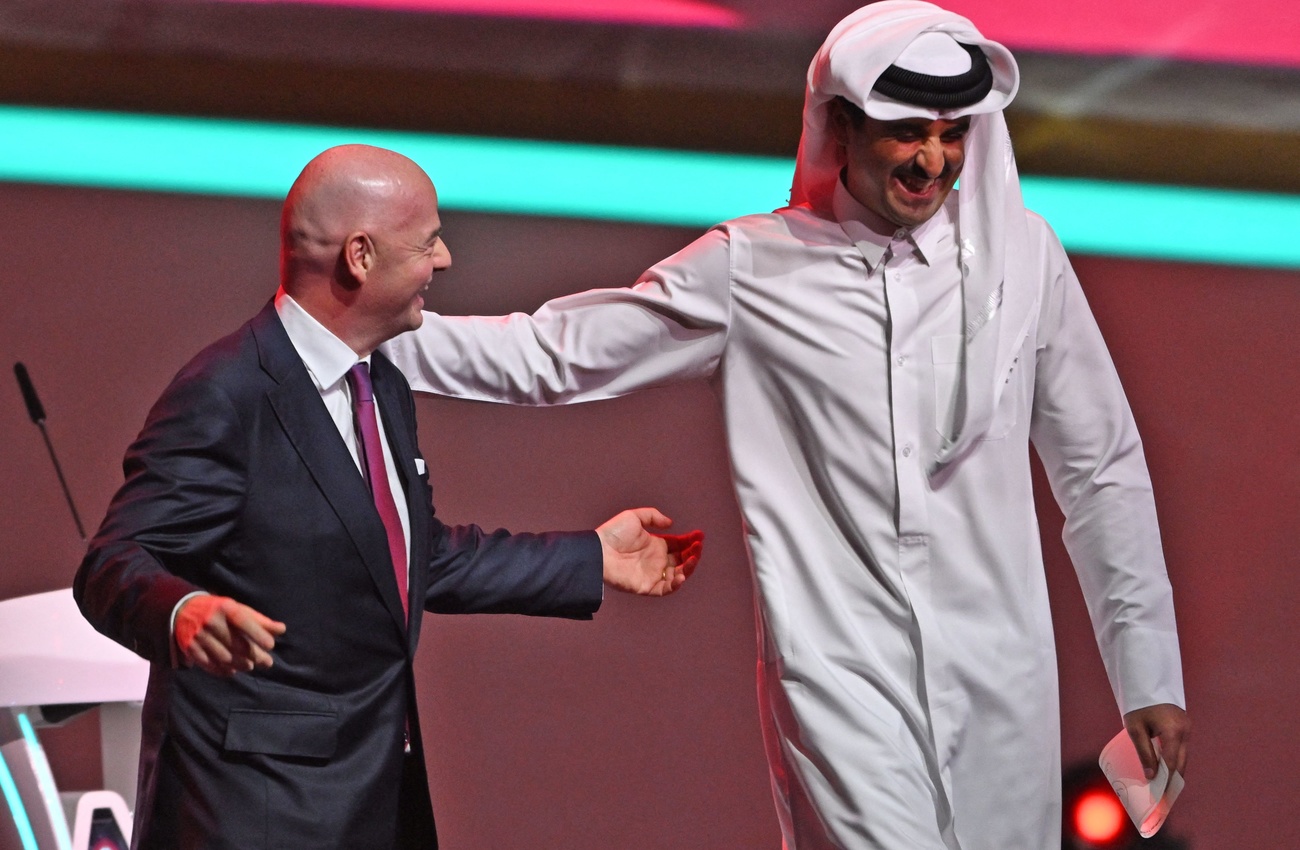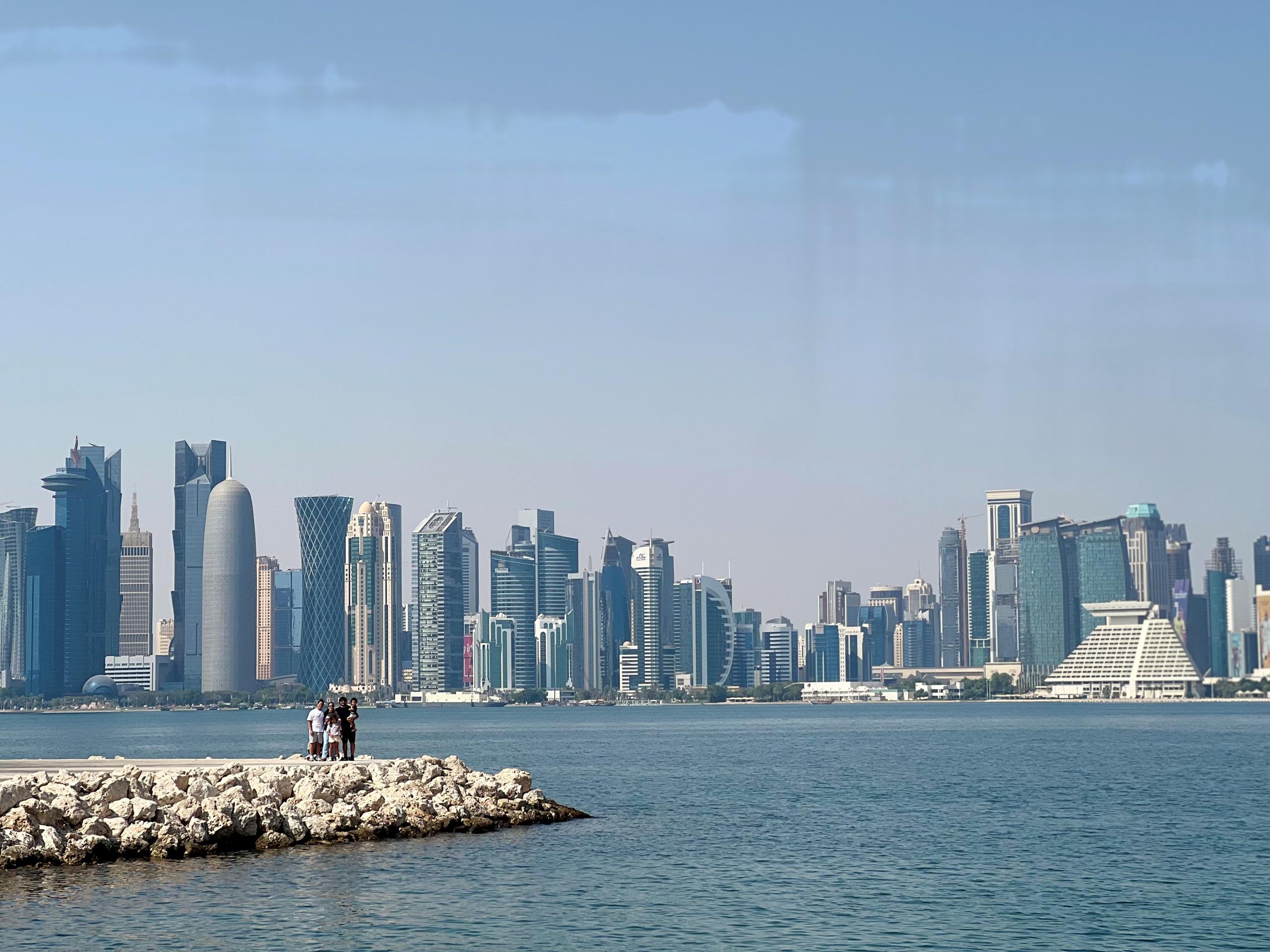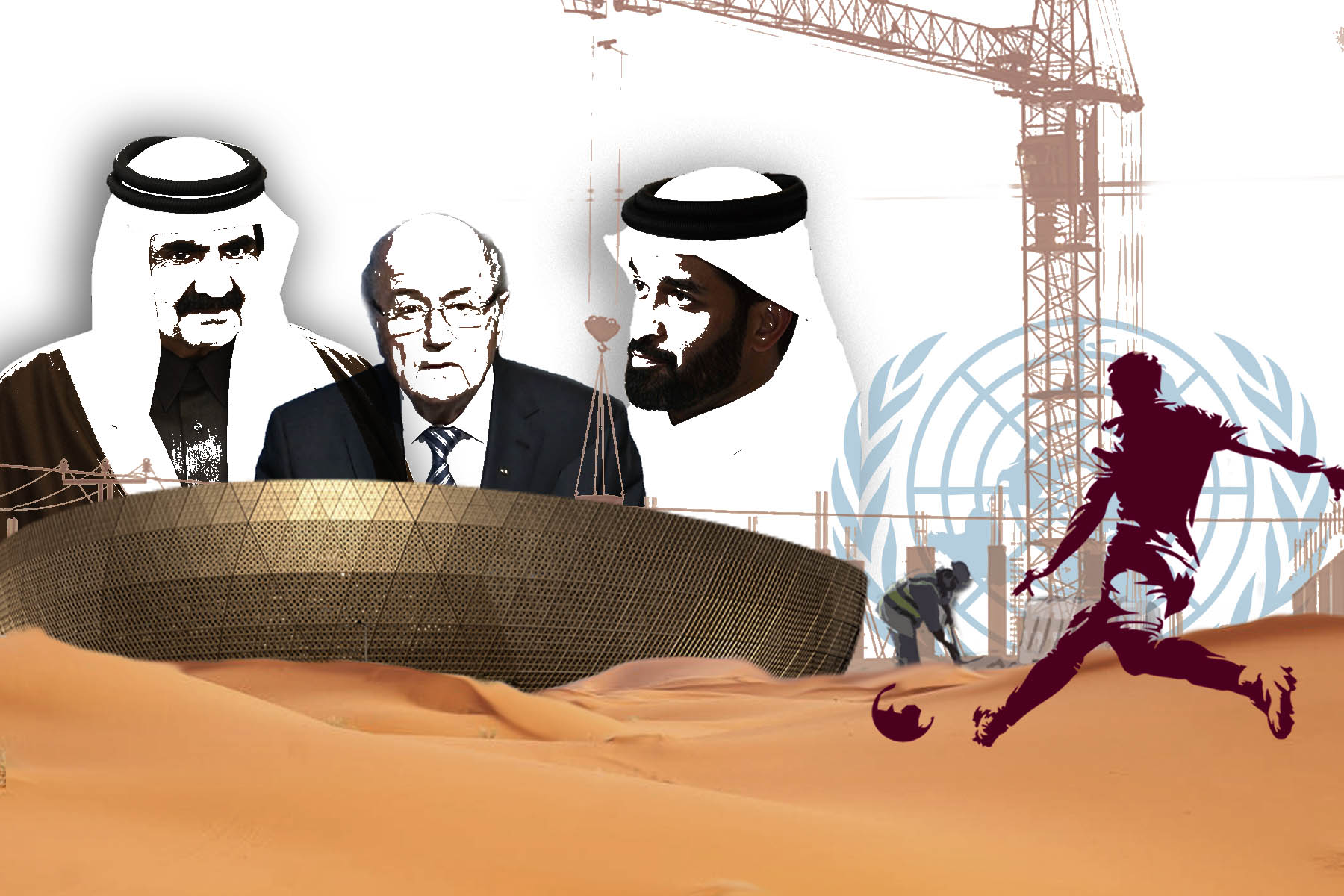How Qatar could spy on World Cup visitors

Drones, surveillance vehicles and mobile-phone hacking: the clandestine spying services proposed to Qatar by a former CIA agent show the World Cup host may be well equipped for possible spying, an investigation by Swiss public television SRF reveals.
Anyone attending the 2022 World Cup in Qatar who spots a van parked outside their hotel should be wary of possible surveillance. Secret documents obtained by Swiss public television SRF’s investigative team, “SRF Investigativ”, reveal details about spying equipment of the Gulf state, including high-tech surveillance vehicles.
The vans, part of a project codenamed “Mystery”, act as mobile surveillance platforms. They are able to intercept signals from wi-fi networks, secretly record videos, and automatically recognise vehicle number plates. They can also monitor data from nearby mobile phones and intercept phone calls
The spy vans are one of several examples outlined in a documentExternal link, which was prepared in August 2014 by the American security firm Global Risk Advisors (GRA). As SRF reported on November 2, the same company may have spied on World Cup critics and senior FIFA officials on behalf of Qatar. The company’s staff consists mainly of former members of US intelligence agencies; its founder is former CIA operative Kevin Chalker.
The newly exposed document entitled “Empowering Qatar” lists a range of programmes intended to improve Qatar’s intelligence-gathering. The investigation by SRF also found that Qatar did indeed buy those surveillance vehicles.

Neither the Qatari embassy in Bern nor the Qatari government’s communications office in the capital Doha have responded to questions from SRF. Global Risk Advisors refused to comment if the document describes proposed or implemented surveillance programmes. A spokesperson for Global Risk Advisors claims the documents are forged and that the allegations are “entirely false”. The company had denied earlier allegations of spying for Qatar and had questioned the authenticity of documents.
“These new claims are entirely false and based on documents that appear to have been fabricated as part of a foreign influence campaign in which Mr. Chalker and his company have become collateral damage. It is disturbing that SRF continues to accept these claims as real with no actual investigation of the implausible claims they make. It’s also remarkable that this story is being pursued at the same time that a reputable news organisation in the U.S. has analysed an intelligence report that details the manner and means in which journalists are being used to further nation-state influence.”
“More specifically, the SRF false documents purport to reflect a wide-ranging intelligence campaign directed at multiple governments, including illegal hacking, a fleet of “black” vehicles, drones, and intelligence operations inside many areas of government. Yet SRF has not provided any evidence of any such vehicles, drones, or any government witnesses, much less any involvement in such an effort by GRA. Such evidence would be easy to locate if this massive intelligence operation were real, which it is not. Instead SRF relies on obviously false documents to make uncorroborated and fictitious assertions.”
SRF has taken various steps to verify the authenticity of the pertinent documents. Last year the Associated Press news agency also reported on several of the spying projects described in the “Empowering Qatar” document.

More
‘Project Merciless’: how Qatar spied on the world of football in Switzerland
Another project, “Viper”, proposed by GRA, targets confidential data in smartphones. The programme is designed to allow the Qatari authorities to exploit vulnerabilities in mobile phones and steal data, call history and contacts stored on a phone.
World Cup fever
In the next few days some 1.2 million people are expected to travel to Qatar, host of the 2022 football World Cup tournament taking place from November 20 to December 18. They will include many top government officials, including Swiss Finance Minister Ueli Maurer and other VIPs.
Fears that visitors to the World Cup could be spied on during the tournament are fuelled by another plan of Qatar and GRA. This was reportedExternal link by the Associated Press news agency in late October. In the article, AP revealed a GRA plan to install a surveillance system in Qatar that could track mobile phones in the country. In addition, the US company also suggested a World Cup 2022 mobile phone app that could record users’ location and movements. According to AP, Qatar gave the project preliminary approval. It is unclear if it was implemented.
Phone apps
Two mobile apps that are mandatory for visitors to the 2022 World Cup have sparked concerns among international IT experts. The official Qatari Covid tracing app and the World Cup ticketing app require almost complete access to a user’s mobile phone.

More
Ex-FIFA boss regrets choice of Qatar for World Cup
The Swiss federal authorities have blocked these two apps on official mobile phones. They have advised federal employees travelling to the tournament to leave private phones at home and to take only a cheap smartphone for private use. However, there have been no official messages for the Swiss public. In official travel advice issued by the Swiss foreign ministry for Swiss visitors to Qatar, there is nothing about the dangers of espionage. In the meantime, Qatari authorities have made it possible for visitors to enter the Gulf state and attend matches without having to use the two apps, according to state websites.
Maurer, a senior member of the Swiss government, plans to travel to Qatar to watch the World Cup football match between Brazil and Switzerland. Responding to a question about how Switzerland plans to prevent the minister becoming a victim of espionage, Maurer’s spokesperson said: “We do not comment on the security arrangements of government officials.”
According to a report by the British Sunday Times newspaper on November 5, a gang of India-based hackers with links to Qatar is suspected of targeting the private email accounts of over 100 senior international politicians, journalists, and people in the sports world. Among those who were allegedly targeted are two members of the Swiss government – Foreign Minister Ignazio Cassis and Interior Minister Alain Berset. Qatar denies the allegations.

More
‘Is Qatar ready for the whole world? I don’t think so’
Spies working for Qatar are the ones who know best about possible surveillance in the country. Another document prepared by GRA reveals how serious these threats are. The American firm handed out a document to new employees travelling to the Gulf state that makes clear it did not view Qatar as friendly territory, even though it was working as a client for the state.
“Get used to the possibility that you are someone’s target,” the document states. “State intelligence services” are named as adversaries. The paper presents rules of conduct to minimise surveillance risks. For example, GRA employees are advised to set up disposable email addresses. Once in Qatar, they should make up an excuse to change their assigned hotel room – clearly a sign that they are worried about being bugged.
In the “Empowering Qatar” document, several of the proposed spying projects target guest workers who built Qatar’s World Cup stadiums in sometimes slave-like conditions. The “Pickaxe” programme promised to capture the personal information and biometrics of migrants working in Qatar to ensure the state’s “dominance” over migrant workers. The programme “Falconeye”, meanwhile, promised the Qatari Ministry of Interior a fleet of drones for domestic use. One of its stated aims is “controlling migrant workers’ population centers”.


In compliance with the JTI standards
More: SWI swissinfo.ch certified by the Journalism Trust Initiative












You can find an overview of ongoing debates with our journalists here . Please join us!
If you want to start a conversation about a topic raised in this article or want to report factual errors, email us at english@swissinfo.ch.